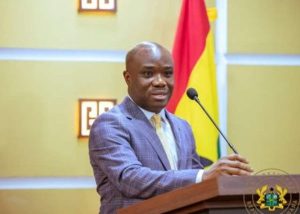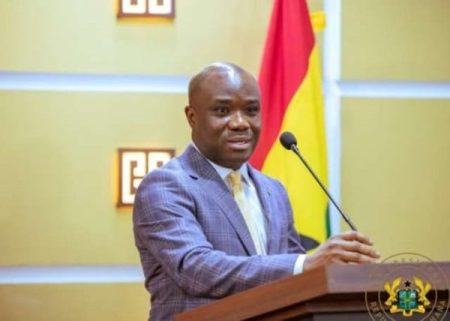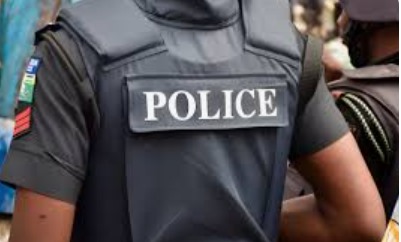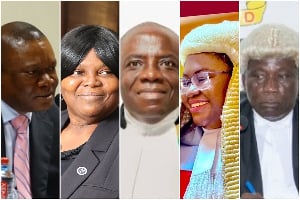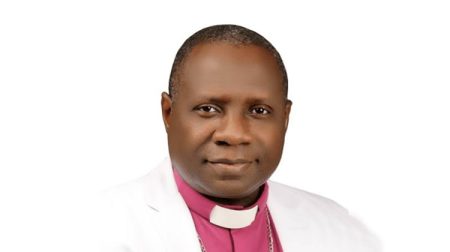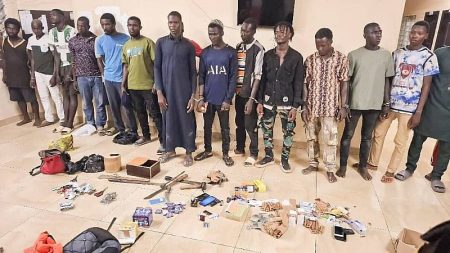President John Dramani Mahama’s directive to reinstate the broadcasting licenses of numerous media outlets, including prominent stations like Asaase Radio and Wontumi FM, marks a significant moment in Ghana’s ongoing dialogue about press freedom and regulatory oversight. The National Communications Authority (NCA)’s initial decision to suspend these stations, along with over 60 others, sparked widespread concern and accusations of politically motivated censorship. The suspensions, ostensibly based on alleged regulatory breaches, were met with swift and vocal criticism from various quarters who viewed the action as a heavy-handed approach that threatened to stifle democratic freedoms and chill free expression. This swift backlash underscored the sensitivity surrounding media regulation and its potential impact on the public’s perception of government transparency and accountability.
The Minister for Communications and Digitalisation, Samuel Nartey George, addressed Parliament on June 12th, confirming the President’s intervention and outlining the path forward. He emphasized that the government’s objective was not to suppress free speech, but rather to address issues of lawlessness, asset misappropriation, and regulatory defiance within the broadcasting sector. The affected stations were granted a 30-day grace period to rectify any outstanding regulatory issues, presenting an opportunity to bring their operations into compliance and resume broadcasting legally. This grace period signifies a more conciliatory approach, allowing for dialogue and remediation rather than outright and permanent closure. The Minister’s statement sought to frame the government’s actions not as an attack on the media, but as a necessary step to ensure a responsible and well-regulated broadcasting landscape.
President Mahama’s decision to reinstate the licenses is widely perceived as an attempt to reaffirm his administration’s commitment to upholding constitutional freedoms. It signals a recognition of the vital role that a free and independent media plays in a democratic society. By reversing the NCA’s decision, the President aims to allay public anxieties about potential censorship and demonstrate a willingness to engage in constructive dialogue with the media sector. This action represents a delicate balancing act, seeking to reconcile the need for regulatory compliance with the imperative to protect the fundamental right to freedom of expression. This recalibration in approach suggests a move toward a more nuanced and less confrontational relationship between the government and the media.
The list of affected stations reveals a diverse range of broadcasters, spanning various geographical locations and potentially serving diverse audiences. This broad scope of the initial suspensions further fueled concerns about the NCA’s motives and the potential impact on access to information. From community radio stations serving localized areas to larger, more nationally recognized broadcasters, the suspensions threatened to disrupt a significant portion of Ghana’s media landscape. The detailed breakdown of the stations, categorized according to their specific regulatory infractions, highlights the complexity of the situation and the various factors contributing to the NCA’s initial enforcement action.
The stations listed fall into several categories based on the nature of their regulatory non-compliance. Some stations failed to apply for license renewals, while others faced revocation notices for not setting up operations within the stipulated two-year timeframe following authorization. Further complicating the situation, some stations applied for continued operation and received provisional authorization but did not complete the necessary fee payments, and others paid the fees but were still awaiting final authorization and inspection. This intricate web of regulatory issues points to potential administrative challenges within both the NCA and the stations themselves, suggesting that the problems may extend beyond deliberate non-compliance.
The government’s decision to reinstate the licenses and provide a grace period allows for a more thorough examination of these individual cases and facilitates a pathway towards resolution. It underscores the importance of a fair and transparent regulatory process that ensures accountability while avoiding overly punitive measures that could unduly restrict media operations. This episode serves as a valuable case study in the challenges of balancing regulatory oversight with the protection of fundamental freedoms in a rapidly evolving media landscape, and it sets the stage for ongoing discussions about the optimal framework for media regulation in Ghana. This incident emphasizes the need for clear communication and efficient administrative processes within both the regulatory body and the media organizations to avoid such disruptions in the future. It also highlights the imperative of upholding the principles of transparency and due process in all regulatory actions concerning the media.




